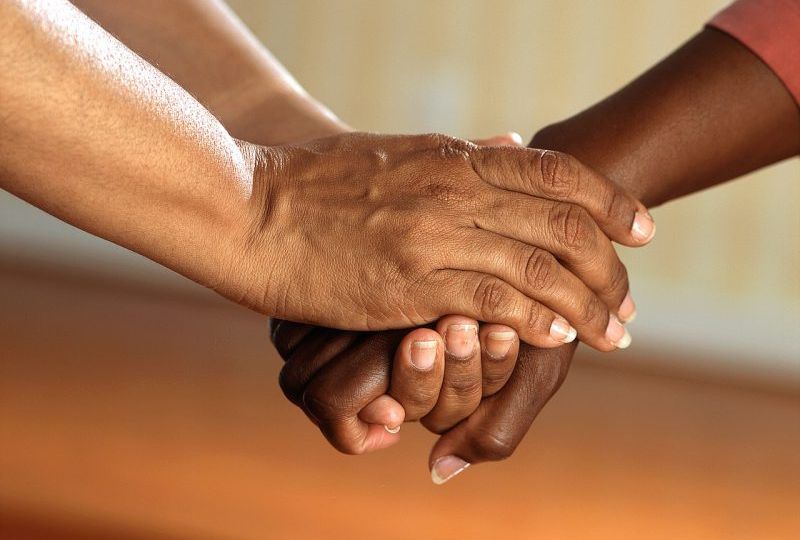
This article was originally published here.
This article not based on any studies I know of, but then I know so little. However, in my experience, anyone who is sexually marginalised, or practices a form of sexuality that isn’t deemed ‘mainstream’, is more prone to mental health issues, than their straight, monogamous, vanilla, let’s-have-sex-once-every-night counterparts.
Result? They need support!
The question in the Indian context is – from whom? For instance, I didn’t find many decent kink-friendly mental health professionals for more than a decade of my BDSM journey. From family? Well, I couldn’t risk telling them about my BDSM proclivities. Community, support groups? No, the trouble is that while they are good for a beginner, if you’re anything like me – opinionated, articulate and loud, there will be factions, people trying to pull you in multiple directions, and so much more.
I was lucky to find some friends who supported and continue to support me unconditionally. They heard me rant, ramble, go on and on about the same problems and emotions, for long hours, over and over. They rescued me from toxic workplaces, they became my SOS calls on bad dates.
However, the question remains: How much unconditional support can one get? If I had only one such person, would they have been able to be there for me as much? How long could people have continued doing that? What did I have to do in order to garner such support? Did I have to eventually change? To find strength within myself, so that I didn’t end up draining my friends?
I look at the BDSM communities around the world, and I see how people assume that a Dominance / submission lifestyle might be a solution to their lack of routine, or their dysfunctional lives. Then I speak to the practitioners, I speak to my partner/s, and we wonder. Can one really support another by role-playing as a Dominant even though one’s heart may not be in it?
In the middle of this pandemic, can one seek sexual support in the form of a hook up with one’s best friend, ‘just because’? Is it redefining boundaries, is it sympathy sex, is it simple indulgence, or is it something that one or both might later resent? Is it really support, or is it something else?
The truth? Support in general has limits. People might respond empathetically, but they operate within boundaries, comfort zones, and limits they set for themselves; healthy or not, boundaries nonetheless. You see, all of us have our limitations. Read a book called The Empath’s Survival Guide to understand what empathetic supportive people deal with. Let me put it in a simple manner: supporting people is not easy. All of us have a life full of unique challenges. So, it’s not easy to support others, unless we ensure self-care too.
The same applies to those who seek support. More often than not, seeking support is misunderstood as being weak, being ‘not good enough’. It makes one feel guilty. Hence, it is important to find a way out.
Another piece of truth? Sexual support is even trickier. Thanks to morality, social norms, and the seemingly acceptable boundaries of existing relationships, it can be difficult to talk to even your friends about the sexual issues you or they might be facing. Support, like helping people find a therapist, or simply lending a patient ear, or anything more, is getting into even murkier waters simply by virtue of the fact that there is so much shame, taboo, awkwardness, and reservation around acknowledging that we may need support with our sexuality. Then there are personal insecurities to add to the mix.
So, the bottom line is, support is just that – support. It may be in the form of casual friendly talk, intentional and meaningful conversations, and/or sharing and gaining some perspective. At the end of it, it is not something that you can overly rely on.
Does that mean I am trying to undermine the importance of support?
Nope. Absolutely not. However, what I am trying to highlight is what we can expect from support. I feel that when it comes to one’s sexuality, just like all other areas of life, support is a limited resource and should be used well and wisely. Support systems shouldn’t be used to be leaned on, beyond a point. We need to lean on them for immediate respite, sure. However, the idea is not to become dependent on them, but to be able to develop stable coping mechanisms for oneself, and use support systems to augment them, or fill in the gaps when needed. Otherwise there’s always a fear of developing co-dependencies. Support systems should instead be used for personal capacity-building, for garnering the courage to come out, for building life and professional skills, for identifying workplaces that are queer-friendly and non-judgmental, amongst other examples.
Support, whether from community or from friends, comes at a personal cost, the price that previous generations, or your supporters, or your friends have paid to reach a place where they can support you. The price that they might have to pay in future for taking your side. So, it’s important to not take support for granted. Last but not the least, like one of my mentors used to say – “If you have had the privilege of being supported, then don’t worry about paying it back, but ensure that you do pay it forward.”
Cover Image: Photo by Rhoda Baer on NCI Visuals Online